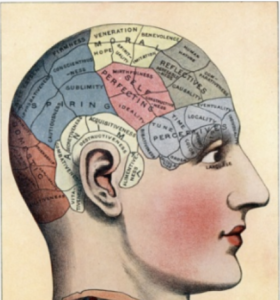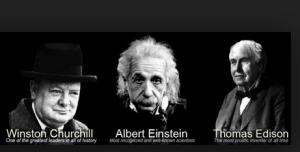Did you know that 2.9 million children in the U.S. have a specific learning disability and one in five students has a brain-based learning and attention issue related to reading, writing, math, or organizational skills? According to the National Center for Learning Disabilities, 1 of out every 10 students in the U.S. is dyslexic, and 80 percent of children placed in special education with a learning disability are dyslexic.
In October, Bookshare is supporting Dyslexia Awareness Month and Learning Disabilities Awareness Month. It’s the perfect time to put a spotlight on learning disabilities like dyslexia, as well as resources like Bookshare that can support the community. Throughout the month, look out for inspiring stories of people with dyslexia, and help us raise awareness and educate others. In this post, we share why early identification is important and dispel some common myths about people with learning disabilities.
Early Identification of Symptoms and Intervention
Studies show that early intervention is a key contributor to success for children with learning disabilities. Now that school has started, many parents and teachers may see learning difference symptoms appear. Does your child constantly get frustrated or anxious with homework and reading assignments? Individuals with dyslexia have difficulty reading and interpreting words, letters, and symbols, but this does not affect their general intelligence. This is an important concept to remember.
Many bright and gifted people throughout history have had learning disabilities, including Thomas Edison, Albert Einstein, Leonardo da Vinci, and Winston Churchill. We’re sure you can name more.
Let’s now consider some of the common myths and stigmas surrounding individuals who are learning disabled.
MYTH: Dyslexia is something children will outgrow.
FACT: While some children who struggle with reading may be “late bloomers,” students with dyslexia continue to face challenges with reading.
MYTH: A person with dyslexia cannot be a good reader.
FACT: With intense systematic instruction, effective tools and support, and hard work, individuals with dyslexia can become strong readers, especially if they receive early intervention and the right support.
MYTH: There are no resources that can help people with dyslexia.
FACT: There are many organizations and resources like Bookshare that can truly change the life of a child, adolescent, or adult with a learning disability.
How Can You Help Raise Awareness?
First, share this post with other parents, educators, advocates, and people with learning disabilities.
Second, join in the conversation all month long on Twitter, Facebook, and Pinterest. Make sure to use the #LDAwarenessMonth hashtag.
Third, find and explore useful information and resources about dyslexia and learning disabilities from these great partners, Understood, International Dyslexia Association, Learning Disabilities Online Organization.
Finally, look out for inspiring stories and posts all month long.
Together, we can raise awareness and better support people with learning disabilities!



Be First to Comment